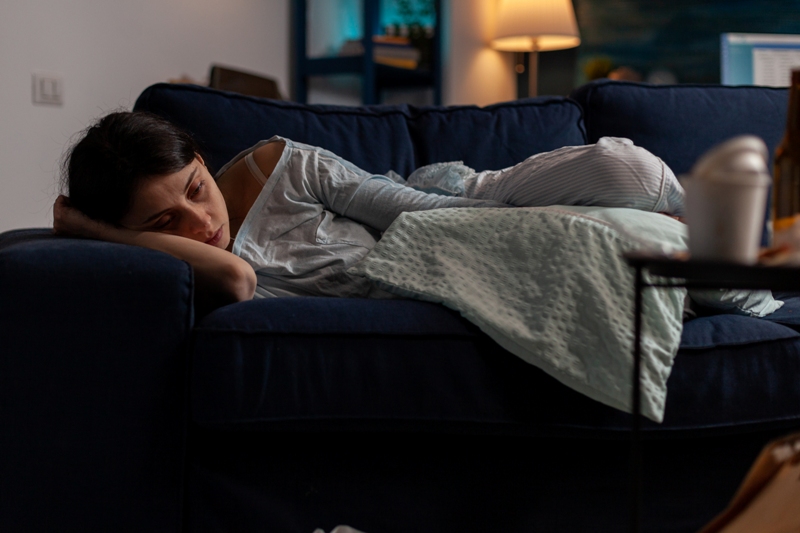In the hustle and bustle of modern life, a good night’s sleep is often elusive, leaving many grappling with the challenges of insomnia. The quest for restful nights doesn’t always require medication; often, cultivating healthy sleep habits can make a profound difference. In this blog post, we explore a comprehensive guide to overcoming insomnia naturally through the development of positive sleep practices.
Understanding Insomnia:
Insomnia is more than just a night of tossing and turning; it’s a persistent difficulty falling or staying asleep, leading to fatigue, irritability, and impaired daily functioning. Before delving into healthy sleep habits, it’s crucial to recognize potential contributing factors to insomnia:
- Stress and Anxiety: Overactive minds can keep individuals awake, especially if worries and anxieties surface during the night.
- Poor Sleep Environment: Uncomfortable bedding, excessive noise, or an overly bright room can disrupt sleep.
- Irregular Sleep Schedule: Inconsistent bedtimes and wake-up times can confuse the body’s internal clock.
- Unhealthy Lifestyle Choices: Excessive caffeine intake, lack of physical activity, and poor dietary habits can contribute to sleep disturbances.
Cultivating Healthy Sleep Habits:
- Establish a Consistent Sleep Schedule:
- Going to bed and waking up at the same time every day, even on weekends, helps regulate the body’s internal clock. Consistency reinforces the natural sleep-wake cycle.
- Create a Relaxing Bedtime Routine:
- Develop pre-sleep rituals that signal to the body that it’s time to wind down. This could include activities such as reading a book, taking a warm bath, or practicing gentle relaxation exercises.
- Optimize Your Sleep Environment:
- Make your bedroom conducive to sleep by keeping it cool, dark, and quiet. Invest in a comfortable mattress and pillows, and eliminate electronic devices that emit disruptive light.
- Limit Exposure to Screens Before Bed:
- The blue light emitted by phones, tablets, and computers can interfere with the production of the sleep-inducing hormone melatonin. Aim to turn off screens at least an hour before bedtime.
- Mind Your Diet:
- Be mindful of what you consume, especially in the hours leading up to bedtime. Limit caffeine and nicotine, as both are stimulants that can disrupt sleep. Additionally, avoid heavy meals close to bedtime.
- Incorporate Regular Physical Activity:
- Engaging in regular exercise, preferably earlier in the day, promotes better sleep. However, intense workouts close to bedtime may have the opposite effect, so time your activities thoughtfully.
- Manage Stress and Anxiety:
- Incorporate stress-reducing practices into your daily routine, such as meditation, deep breathing exercises, or gentle yoga. Managing stress is essential for calming the mind before bedtime.
- Limit Naps:
- While short naps can be refreshing, extended or irregular napping during the day can interfere with nighttime sleep. If you need to nap, aim for a brief duration and avoid it too close to bedtime.
- Avoid Clock Watching:
- Constantly checking the clock during the night can heighten anxiety about not sleeping. Turn your clock away or place it where you can’t see it, allowing you to focus on relaxation rather than the passing time.
- Consider Natural Sleep Aids:
- Some individuals find relief from insomnia through natural sleep aids like herbal teas (chamomile or valerian root) or relaxation-promoting supplements. Consult with a healthcare professional before introducing any new supplements.
The Role of Cognitive Behavioral Therapy for Insomnia (CBT-I):
For those seeking additional support, Cognitive Behavioral Therapy for Insomnia (CBT-I) is a structured program proven effective in treating insomnia. CBT-I addresses the thoughts, behaviors, and patterns that contribute to sleep difficulties, offering tailored strategies to improve sleep quality naturally.
Conclusion:
Overcoming insomnia naturally involves a holistic approach to sleep that extends beyond the bedroom. By cultivating healthy sleep habits and making positive lifestyle choices, individuals can empower themselves to embrace restful nights and wake up rejuvenated. Remember that consistency is key, and the journey to better sleep is a gradual process. If insomnia persists or worsens, seeking guidance from a healthcare professional or sleep specialist is essential. Through the implementation of these natural strategies, the path to a more peaceful and rejuvenating night’s sleep becomes an achievable reality.





